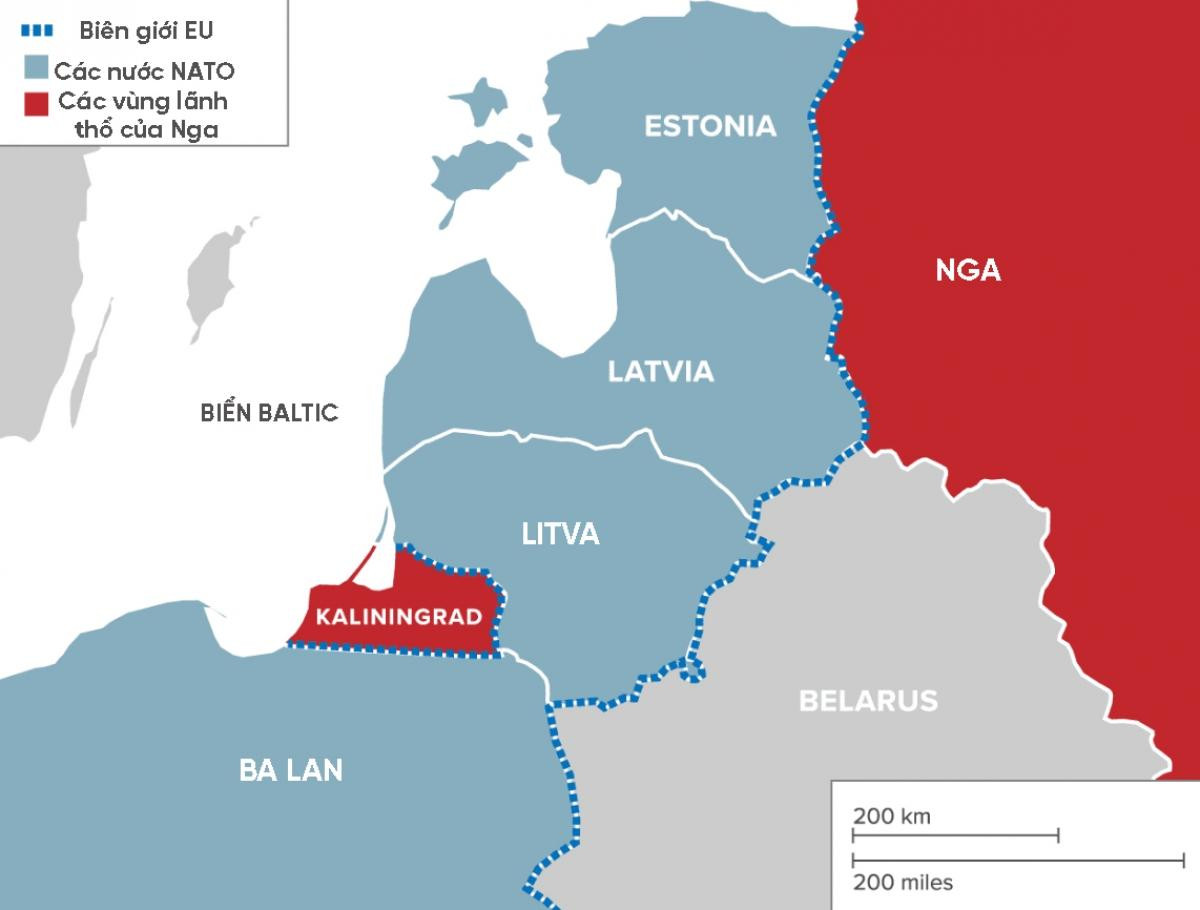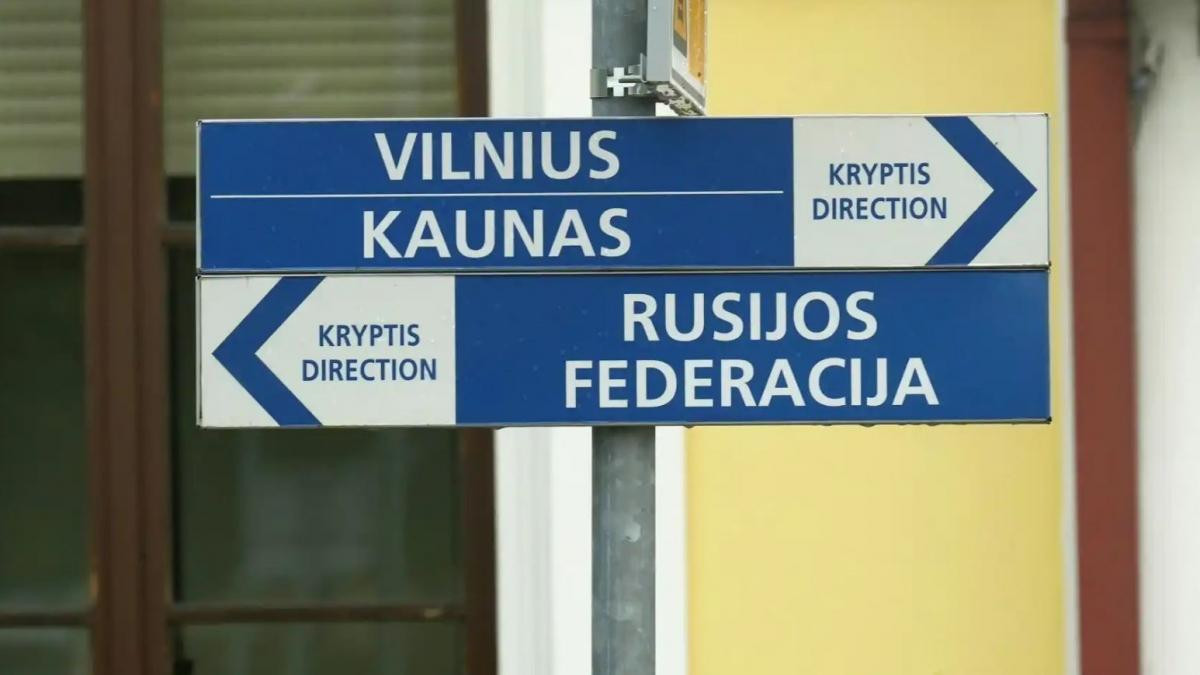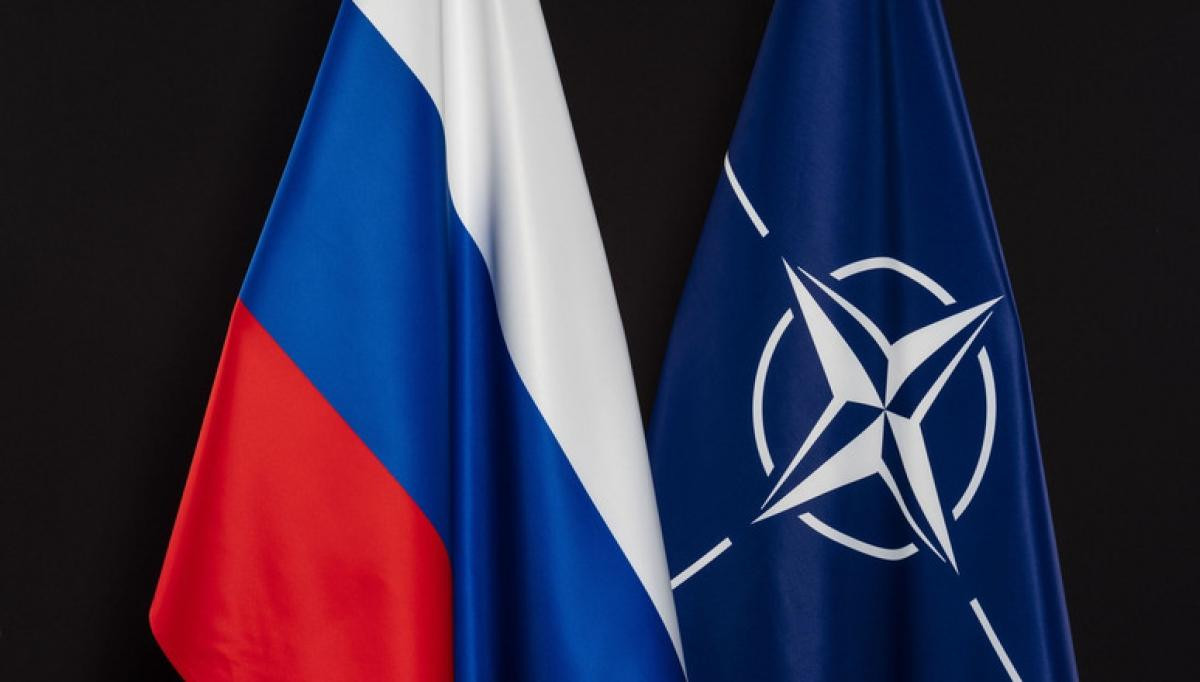The root causes of Russia-Lithuania tensions and the risk of a Russia-NATO war.
The Russia-Lithuania tensions risk plunging a NATO country, and possibly the entire alliance, into a direct military conflict with Moscow.
New tensions between Russia and the West are escalating after Lithuania decided to halt the transport of certain goods through its territory to Russia's Kaliningrad region as part of European Union (EU) sanctions against Russia.
The Kremlin warned it would retaliate against the sanctions in a way that could have "extremely negative consequences" for the Lithuanian people, raising concerns about a direct conflict between Russia and NATO.
 |
Location of Kaliningrad. Photo: CNBC |
The Kaliningrad region was formerly part of the German province of East Prussia but came under Soviet control after World War II following the 1945 Potsdam Treaty between the Allied powers. Since the Cold War, Kaliningrad has been a major base for the Russian Baltic Fleet.
However, after the collapse of the Soviet Union and the independence of the Baltic states, Kaliningrad was separated from the rest of Russia by Lithuania, Latvia, and Estonia – all NATO members. To the south of the territory lies Poland – also a NATO member.
As relations between Russia and the West escalated, Kaliningrad's military role grew. The region became a frontline in Russia's efforts to counter what Moscow perceived as NATO's hostile policies. The Kremlin reinforced its military forces there, equipping them with modern weapons, including Iskander precision-guided missiles and several advanced air defense systems. As the region's military role increased, Kaliningrad's dependence on supplies via Poland and Lithuania made it vulnerable.
The source of the Russia-Lithuania tension.
Lithuania stressed that the ban on goods on the sanctions list is part of the EU's fourth package of sanctions against Russia, and stated that it only applies to steel and ferrous metals from June 17.
The Vilnius authorities rejected Russia's labeling of the move as a blockade and stressed that goods not subject to sanctions and rail passengers could still travel through Lithuania. Also included in the EU decision, Lithuania will ban imports of Russian coal from August and shipments of oil and petroleum products through the country will cease in December.
 |
Illustration photo: Reuters |
EU High Commissioner for Security and Foreign Policy Josep Borrell supported Lithuania, saying he was concerned about the form of Russia's response, but defended Vilnius's position.
"I am certainly always concerned about Russia's reaction," Borrell said, while affirming that there is no blockade of Kaliningrad.
"Lithuania is not implementing unilateral sanctions but is only applying EU sanctions."
Russia has officially protested the halt in cargo shipments to Kaliningrad, calling the move a violation of the Russia-EU agreement on the free movement of goods to the region. Kaliningrad Governor Anton Alikhanov said the ban would affect half of the goods shipped to the region, including cement and other construction materials.
Nikolai Patrushev, Secretary of the Russian Security Council, visited Kaliningrad on June 21 to meet with local officials. He called the restrictions "hostile acts" and warned Moscow would respond with certain measures "that would have a significant negative impact on the Lithuanian people."
Patrushev did not elaborate, but Alikhanov suggested that Russia's response might include halting cargo shipments through Lithuanian and other Baltic ports.
Lithuania has significantly reduced its economic and energy dependence on Russia, recently becoming the first EU country to stop using Russian gas. It has also ceased importing Russian oil and has stopped importing electricity from Russia. Most shipments from Russia through Lithuanian ports have stopped under the terms of EU sanctions, but Moscow may restrict the movement of goods from third countries through Lithuania. President Putin will decide on Russia's response after receiving a report from Mr. Patrushev.
Timothy Ash, senior strategist at BlueBay Asset Management, commented:Kaliningrad is strategically important to Russia.", while also assessing that Russia would certainly defend this territory.
"Russia will react, that's for sure. The question is what that reaction will be and whether Russia will take military action."
Expert Ash suggests that Russia may use its naval forces in the Baltic Sea to conduct some form of retaliatory blockade against Lithuanian trade, although this could be seen by NATO and the EU as a serious escalation of tensions.
"That will be the fine line in deciding whether or not to trigger Article 5 of the NATO Treaty."
The risk of a direct conflict between Russia and NATO.
Tensions between Russia and NATO, already escalating during the war in Ukraine, worsened following Lithuania's actions. The current situation risks plunging one NATO country, and possibly the entire alliance, into a direct conflict with Russia.
Some Western countries fear that Russia may be considering using military action to control the land corridor between Belarus and the Kaliningrad region known as the Suwalki Corridor – a 65km strip of land in Poland along the border with Lithuania.
 |
Illustration photo: Reuters |
Observer Vladimir Solovyov accused on Russian state television that the West's "brinkmanship" policy is counting down the days to World War III.
Lithuanian Defense Minister Arvydas Anusauskas warned on June 22nd about the dangers posed by Russia's actions amid escalating tensions in the Kaliningrad region.
Nevertheless, some Western observers argue that while troops are concentrated in Ukraine, deploying any forces in the Baltic would exceed Russia's conventional weapons capabilities.
Estonian Prime Minister Kaja Kallas stated that Lithuania would not face a military threat, while also asserting that Russia was trying to pressure the EU to end sanctions.
"Russia is very good at playing with our fears to make us back down in our decision-making," Kallas said in an interview with AP.
Tensions between Russia and Poland and Lithuania could trigger a direct conflict between Russia and NATO – the military alliance obligated to defend any member under the principle of collective defense in Article 5 of the NATO Treaty.
On June 21, US State Department spokesman Ned Price stressed "Washington's rock-solid commitment to this principle," which he called a "cornerstone" of NATO.
Russian Deputy Foreign Minister Sergei Ryabkov responded by warning the EU and NATO against "dangerous" statements about Kaliningrad.
"Powerful and influential forces in the West are doing everything they can to worsen tensions with Russia," the diplomat said, adding that some actions "without limits" make the prospect of military confrontation with us seem inevitable.
When asked whether Russia would only respond diplomatically or go further, Russian Foreign Ministry spokeswoman Maria Zakharova said: "The answer is no. It will not be a diplomatic response but rather practical measures."



